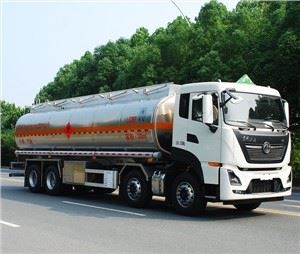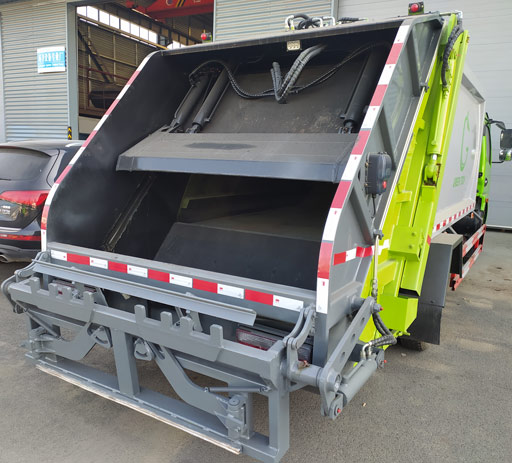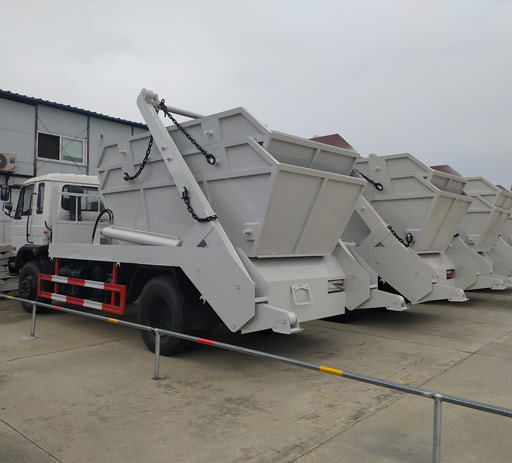Everything You Need to Know About Small Water Trucks
Small water trucks are becoming increasingly popular for various applications, from construction to agriculture and landscaping. These vehicles offer a versatile solution for transporting water, dust control, and irrigation needs. In this comprehensive guide, we’ll explore the benefits, features, types, and practical uses of small water trucks.
What is a Small Water Truck?
A small water truck is a compact vehicle specifically designed for transporting and distributing water. Typically ranging in size from 1,000 to 3,500 gallons, these trucks are ideal for smaller projects where larger trucks may be impractical. Whether for maintaining construction sites, agricultural needs, or watering plants in a landscape setting, small water trucks provide efficiency and ease of use.
Key Features of Small Water Trucks
- Tank Capacity: Usually between 1,000 to 3,500 gallons.
- Dimensions: Smaller size suitable for tight spaces.
- Water Pumps: Often equipped with low-pressure pumps for effective distribution.
- Spray Equipment: May include hoses and spray nozzles for versatility.
- Durability: Built to withstand rough terrains and heavy usage.
Types of Small Water Trucks
1. Tank Trucks
Tank trucks are the most common type of small water truck, consisting of a large tank mounted on a truck chassis. They come in various materials like stainless steel or polyethylene for different applications.
2. Watering Trucks
Watering trucks are equipped with spray systems specifically designed for irrigation tasks. They are popular in landscaping and agricultural sectors.
3. Dust Control Trucks
These trucks are designed with specialized spray systems for controlling dust on construction sites or dirt roads.
4. Fire Suppression Trucks
Some small water trucks are equipped with firefighting systems, including hoses or automatic sprinkler systems, making them essential for fire prevention in rural areas.
Benefits of Using Small Water Trucks

1. Cost-Effectiveness
With smaller tank sizes, the cost of purchasing and operating small water trucks is generally lower than larger models.
2. Versatility
These trucks can be used for a variety of applications, which makes them an invaluable asset for many businesses.
3. Easy Maneuverability
Small water trucks can easily navigate through narrow spaces, making them ideal for urban projects or small worksites.
4. Lower Fuel Consumption
Due to their smaller size and lighter weight, small water trucks consume less fuel compared to their larger counterparts, resulting in savings over time.
How to Choose the Right Small Water Truck
1. Determine Your Requirements

Identify the primary purpose of the small water truck. Will it be for irrigation, dust control, or firefighting? This will help you choose the appropriate type and specifications.
2. Tank Capacity

Consider the amount of water you need to transport and select a tank size that fits your requirements without being overly large.
3. Pump System
Examine the pump system’s pressure and flow rate. A higher pressure may be needed for dust control, while irrigation might require lower pressure.
4. Build Quality
Ensure the materials used in the construction of the truck are durable and can withstand the rigors of your specific application.
5. Budget
Set a budget considering not only the purchase price but also maintenance, insurance, and operation costs.
Practical Examples of Small Water Truck Applications
1. Construction Sites
Small water trucks are commonly used on construction sites to keep dust at bay, ensuring safety and compliance with local regulations.
2. Agricultural Use
Farmers utilize small water trucks for irrigation and watering livestock, ensuring efficient use of water resources in more remote locations.
3. Landscaping
Landscapers use small water trucks to transport water for planting, ensuring trees and shrubs get the necessary hydration during their initial growth stages.
4. Emergency Response
In emergencies, small water trucks can be deployed for firefighting efforts, especially in rural areas lacking hydrant access.
Maintenance Tips for Small Water Trucks
1. Regular Inspection
Perform routine checks on the tank, pump, and hoses to ensure everything is functioning properly.
2. Cleaning
Regularly clean the water tank to prevent algae and bacteria buildup that can contaminate water.
3. Winterization
In colder climates, be sure to take steps to winterize the truck to prevent freezing and damage to the water system.
4. Fluid Checks
Always check and maintain appropriate fluid levels in the pump system and engine.
FAQs About Small Water Trucks
1. How much does a small water truck cost?
The price of a small water truck typically ranges from $30,000 to $100,000, depending on the features and brand.
2. Can I rent a small water truck?
Yes, many equipment rental companies offer small water trucks for short-term and long-term rental options.
3. What is the average lifespan of a small water truck?
With proper maintenance, a small water truck can last between 10 to 15 years.
4. Are there any licensing requirements for operating a small water truck?
Licensing requirements vary by state and country. Check local regulations to ensure compliance.
5. Do small water trucks come with warranties?
Most manufacturers provide warranties for new small water trucks, typically covering defects in materials and workmanship.
6. What kind of fuel do small water trucks use?
Small water trucks usually run on diesel fuel, but some models may be powered by gasoline or alternative fuels; always check the manufacturer’s specifications.
Conclusion
Small water trucks are invaluable for various industries and applications. By understanding their features, benefits, and maintenance requirements, you can make an informed decision whether to purchase or rent one. This comprehensive guide aims to ensure you have the knowledge and resources needed to utilize small water trucks effectively.
